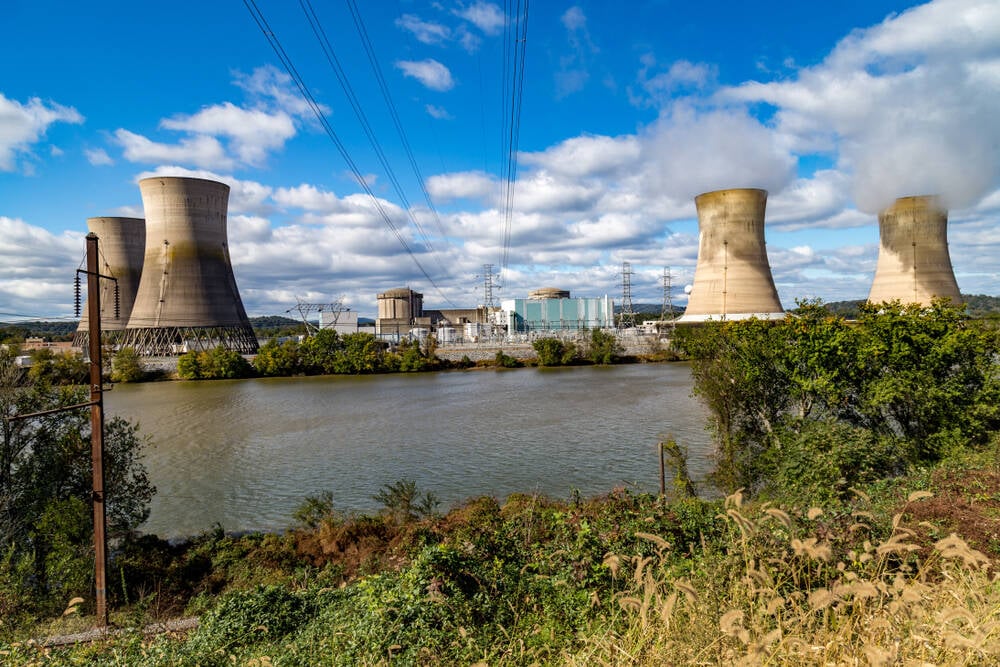The idle Three Mile Island Unit 1 nuclear power plant may soon be coming back online in Pennsylvania, thanks to a 20-year power purchase agreement (PPA) between Microsoft and Constellation Energy, which owns the shuttered facility.
TMI Unit 1, which was retired for economic reasons in 2019, is slated for a potential revival as the Crane Clean Energy Center (CCEC), according to Constellation’s announcement of a new PPA with the IT giant.
While the terms of the deal remain undisclosed, reopening the facility will require approval from the US Nuclear Regulatory Commission, though that might not be a hard sell.
Always-on, carbon-free nuclear energy plays an important role in the fight against climate change and meeting the country’s growing energy demands
“The start of the Crane Clean Energy Center represents an important milestone for our nation, the region, and the people of the great state of Pennsylvania,” Michael Goff, acting assistant secretary for the US Dept of Energy’s office of nuclear energy, said of the announcement. “Always-on, carbon-free nuclear energy plays an important role in the fight against climate change and meeting the country’s growing energy demands.”
Constellation noted that Unit 1 will need “significant investments” to restore the plant, with work needed on the turbine, generator, main power transformer, and cooling and control systems.
Lest you think this is the same Three Mile Island facility that had a partial meltdown in 1979, described as the worst commercial nuclear accident in US history, it’s not: That happened at TMI Unit 2, located next door.
Unit 1, on the other hand, “operated at industry-leading levels of safety and reliability for decades before being shut down for economic reasons,” according to Constellation. The facility was shut down after it failed to get a needed subsidy renewed that the company said was key to competing with cheaper fossil fuels.
Before its retirement, TMI Unit 1 had a generating capacity of 837 megawatts, or enough to power hundreds of thousands of typical homes, per Constellation. A recent economic analysis of the CCEC project by the Pennsylvania State Building and Construction Trades Council found that, over the 20 years of the Microsoft PPA, the CCEC will generate $16 billion in state GDP, 3,400 new jobs, and an estimated $3 billion in federal and state tax revenue.
Energy generated by the facility would reduce carbon emissions in the region (TMI serves the PJM Interconnection, which provides energy from New Jersey all the way to Eastern Kentucky) by 3 million metric tons per year, according to the analysis.
Microsoft could use some greener AI juice
For all its pledges of going carbon negative by 2030, Microsoft has seen its carbon dioxide emissions rise by nearly 30 percent since 2020, and most of the blame falls squarely on AI.
We’ve known this was coming for some time, with Google reporting similar spikes in its datacenter emissions though the Chocolate Factory said this shouldn’t be blamed on its AI deployments. Exelon, a power company that counted Constellation as one of its subsidiaries until 2022, meanwhile reported that power demand from datacenters has skyrocketed, with Chicago-area bit barns set to draw nine times the energy in coming years thanks to machine-learning projects. Arm’s CEO Rene Haas has separately speculated that neural networks could be responsible for eating up a quarter of US electricity by 2030.
And Bill Gates has said not to worry about AI’s energy problem, calling it something artificial intelligence would solve before it gets too severe – likely with a push toward renewable energy.
Microsoft doesn’t seem entirely onboard with the “wait and let AI solve it” approach, and this week also announced the founding of a Global AI Infrastructure Investment Partnership (GAIIP) with BlackRock and other private equity investors. The plan is to raise $100 billion through the GAIIP to fund datacenters and energy infrastructure around the world to support facilities running energy-hungry AI workloads.
Oracle wants to power 1GW datacenter with trio of tiny nuclear reactors
By signing a PPA with Constellation, Microsoft will purchase energy from the CCEC at a fixed price for 20 years. That power will be delivered to the grid, not directly to Microsoft, offsetting any fossil fuel-derived energy that would have otherwise powered its operation. Presumably Microsoft will benefit from this as its datacenters are connected to that grid, and will be putting demand on it, pressure that will be alleviated by the TMI reactor.
The PPA with the CCEC will expire in 2044, and Constellation said it plans to pursue a license to remain in operation for an additional decade after that.
It’s not immediately clear if the CCEC investment is solely a Microsoft venture, or if it was negotiated through GAIIP. A Microsoft spokesperson stated they had no further comment about the plan. ®
Now read: We need nuclear fusion power generation, like yesterday.

